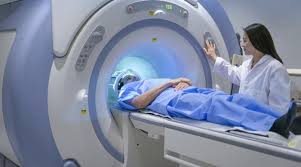
DIPLOMA IN X RAY TECHNOLOGY (2 YEAR)
DIPLOMA IN X-RAY TECHNOLOGY
📘 YEAR 1 – FOUNDATIONS OF RADIOLOGY AND IMAGING
1. Introduction to Radiologic Technology
- History and evolution of X-ray technology
- Role of a radiologic technologist
- Radiology departments and equipment overview
- Duties and professional ethics
2. Human Anatomy & Physiology
- Introduction to body systems (skeletal, muscular, cardiovascular, etc.)
- Anatomical positions, planes, and medical terms
- Organ positioning in relation to radiographic imaging
3. Basic Physics of X-Ray
- Properties of X-rays
- Production and nature of X-rays
- Structure of atoms, electromagnetic radiation
- Units of radiation (Roentgen, Rad, Gray, Sievert)
4. Radiographic Equipment & Accessories
- Components of an X-ray machine
- Grids, collimators, filters, bucky table, cassette
- Digital and analog imaging systems
- Maintenance and basic troubleshooting
5. Radiographic Procedures – I
- Basic positioning techniques
- Chest, upper limb, lower limb, abdomen X-rays
- Patient preparation and instruction
6. Dark Room Techniques (For Conventional Systems)
- Film handling, processing techniques
- Developer, fixer, washing & drying
- Manual and automatic processing
7. Radiation Protection and Safety
- Hazards of radiation exposure
- ALARA principle (As Low As Reasonably Achievable)
- Use of lead aprons, dosimeters, protective barriers
- Regulatory bodies (AERB, ICRP guidelines)
📘 YEAR 2 – ADVANCED RADIOGRAPHY AND CLINICAL PRACTICE
1. Radiographic Procedures – II
- Advanced imaging of spine, skull, pelvis
- Contrast studies (Barium meal, IVP, HSG, etc.)
- Pediatric and trauma radiography
- Mobile and emergency radiography
2. Digital Radiography and PACS
- Digital X-ray systems (CR, DR)
- Image acquisition, processing, and storage
- Picture Archiving and Communication System (PACS)
- DICOM standards and image sharing
3. Specialized Imaging Modalities (Introductory Concepts)
- CT Scan: Basics and procedure overview
- MRI: Magnetic fields and basic imaging principles
- Ultrasound: Basic physics and applications
- Mammography and Fluoroscopy overview
4. Quality Control in Radiology
- Equipment testing and calibration
- Film quality, image artifacts, and retake analysis
- Preventive maintenance procedures
5. Patient Care and Ethics in Radiology
- Patient interaction, consent, and comfort
- Handling elderly, children, and differently-abled patients
- Medical ethics, confidentiality, and legal aspects
6. Clinical Practicum / Internship
- Supervised hospital posting in radiology departments
- Performing radiographic exams under guidance
- Logging of case studies and evaluations
7. Research Project / Case Study (Optional or Institute-Based)
- Presentation of a radiology-based topic
- Research on diagnostic techniques or patient case logs

